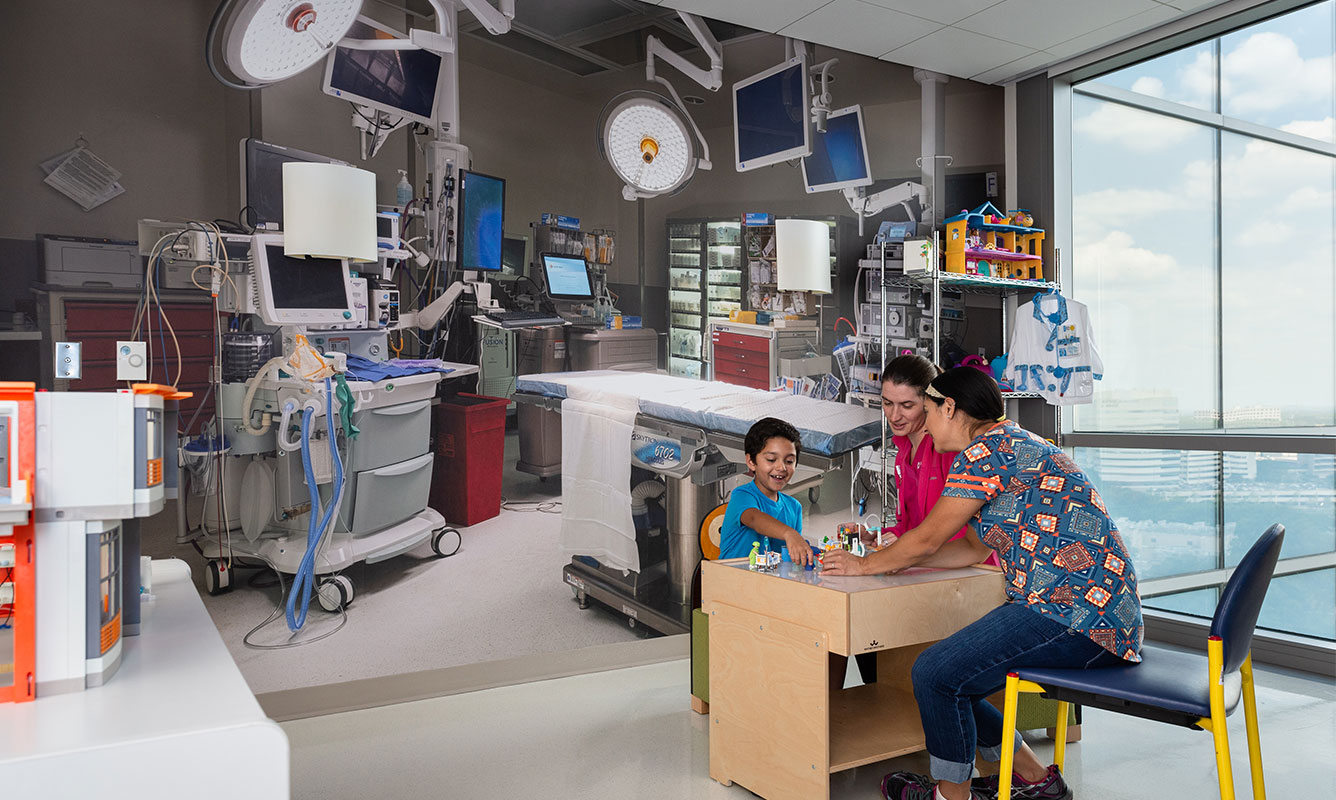Study Shows Hospital Care for Kids in San Antonio is Good, but Fragmented
Public/private partnership could result in world class children’s hospital
The number of children in Bexar County and the surrounding 8-county region is expected to top 640 thousand by 2020 and a study, released today, shows that San Antonio hospitals have some work to do if they want to be able to provide these future kids with highly specialized care for complex medical problems and serious injuries.
“Each of the four major hospital systems in San Antonio offers some pediatric services, but none provides ‘one-stop shopping’ for all childhood illnesses and pediatric trauma,” said Bexar County Judge Nelson Wolff at courthouse media conference this morning. This fragmentation of pediatric services is one of the key findings of a market assessment recently completed by Kurt Salmon Associates (KSA), a premier management consulting firm to leading hospitals and health systems. The purpose of the KSA study was to determine the current and future demand for pediatric health services.
San Antonio is the largest city in Texas without a separately licensed, free-standing children’s hospital of the kind now serving Houston, Dallas, Fort Worth, Corpus Christi and Austin, and under construction in El Paso. Most recently, the Scott and White Health Care System announced plans to establish a full service children’s hospital in Temple.
Wolff, joined by University Health System President/CEO George B. Hernández, Jr., explained how this current decentralized approach to children’s hospital services has resulted in an overabundance of pediatric hospital beds in San Antonio. “This is inefficient and it is driven by competition,” added Wolff. “Not just competition for patients, but also stiff competition for pediatric specialists and experience nurses. This is not economically viable in the long run.”
The report also found that no San Antonio hospital has sufficient pediatric patient volumes to support a full array of pediatric-dedicated, hospital-based physicians and that the scattering of pediatric care at hospitals across the community means there is no health system with both comprehensive high technical expertise and large market share.
Local market conditions, combined with a national shortage of pediatric specialists, make it increasingly difficult to recruit and retain these physicians in San Antonio. KSA further concluded “Over time, gaps in highly trained professionals could result in an overall erosion of the quality of care available to children in San Antonio.”
The solution, Wolff and Hernández agree, is to establish a public/private partnership to construct a comprehensive free-standing children’s hospital in San Antonio. “Pediatric specialists have a choice of where to practice,” Hernández explained. “The location ‘of choice’ for the caliber of pediatricians needed to provide the very latest in advanced diagnostic and treatment options for seriously sick and injured children is a comprehensive pediatric-focused organization, whose mission is dedicated exclusively to child and family centered care.” The KSA study validates this solution. “Creation of a free-standing hospital will offer the unmatched advantage of centralizing the patient volumes to garner scale to support board-certified pediatric subspecialty physicians and pediatric dedicated resources,” KSA concluded.
“Our goal is to provide a world class hospital for our entire pediatric physician community, making available to them the latest treatment options and advanced technologies to enable them to provide the best quality care to their patients,” said Hernández. The proposed hospital would also serve as the dedicated teaching hospital of the School of Medicine of the UT Health Science Center at San Antonio, to bring biomedical researchers to the bedside so clinical care improvements can reach sick children more rapidly than at ordinary community hospitals. “It would bring to San Antonio the ideal environment to train pediatricians, subspecialists, nurses, therapists and other health professionals who dedicate their careers to improving the health of children,” added Wolff. “It’s a ‘win’ for our kids and our economy.”



